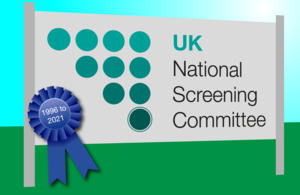John Booth appointed and David Marks reappointed as Trustees of the National Gallery
John Booth has been appointed by the Prime Minister as a Trustee of the National Gallery for a term of four years from 20 August 2021 to 19 August 2025.
John chairs a number of public and private companies including Maintel plc and the London Theatre Company. He also serves as a non-executive director of several investment management businesses and has venture capital interests in e-commerce, media and telecommunications. He chairs The Prince’s Trust and Pallant House Gallery, and is a trustee of the Chatsworth Settlement and the Arts Foundation. He is also a Fellow of Merton College, Oxford, and ambassador for the homelessness charity Depaul International.
John joined the Board of the National Gallery earlier this year having been appointed as link Trustee by the Tate Gallery Board. This appointment standardises his membership of the Board of Trustees of the National Gallery, directly appointed by the Prime Minister, and ends the association with the Tate Gallery.
As a result of his appointment, the National Gallery trustees have elected John as their new Chair with immediate effect.
David Marks has been reappointed by the Prime Minister as a Trustee of the National Gallery for a term of four years from 13 June 2021 to 12 June 2025.
David Marks co-founded Brockton Capital in 2005; the firm has raised £2.0bn of equity across four separate real estate vehicles since 2006, which invested into a £5.0bn UK portfolio spanning over 20 million sq ft. In 2018, David co-founded Brockton Everlast as the fourth Brockton entity; Brockton Everlast now owns a growing Office and Life Science portfolio of over 1.0m sq ft. in London and Cambridge.
Prior to co-founding Brockton Everlast, David worked at The Blackstone Group (2001-2005, in London) and JLL (1989-1999, in London and New York).
David holds a Master’s degree in Real Estate Development from MIT, Boston. David was a member of the Bank of England’s Commercial Property Forum from 2007 until 2017, has been on the British Property Federation Policy Committee from 2011 to-date and is a Trustee of both The National Gallery and the Architecture Foundation.
These roles are not remunerated. This appointment and reappointment have been made in accordance with the Cabinet Office’s Governance Code on Public Appointments. The appointments process is regulated by the Commissioner for Public Appointments. Under the Code, any significant political activity undertaken by an appointee in the last five years must be declared. This is defined as including holding office, public speaking, making a recordable donation, or candidature for election. John Booth has declared a recordable donation to a political party. David Marks has not declared any activity.
Notes to editors:
The National Gallery Board consists at any one time of 12 to 14 Trustees, all of whom are appointed by the Prime Minister through open competition under the public appointments process, save for one, who is appointed by the Board of Tate.
The Trustees are required by The Museums and Galleries Act 1992 to appoint one of their number to be Chair.

